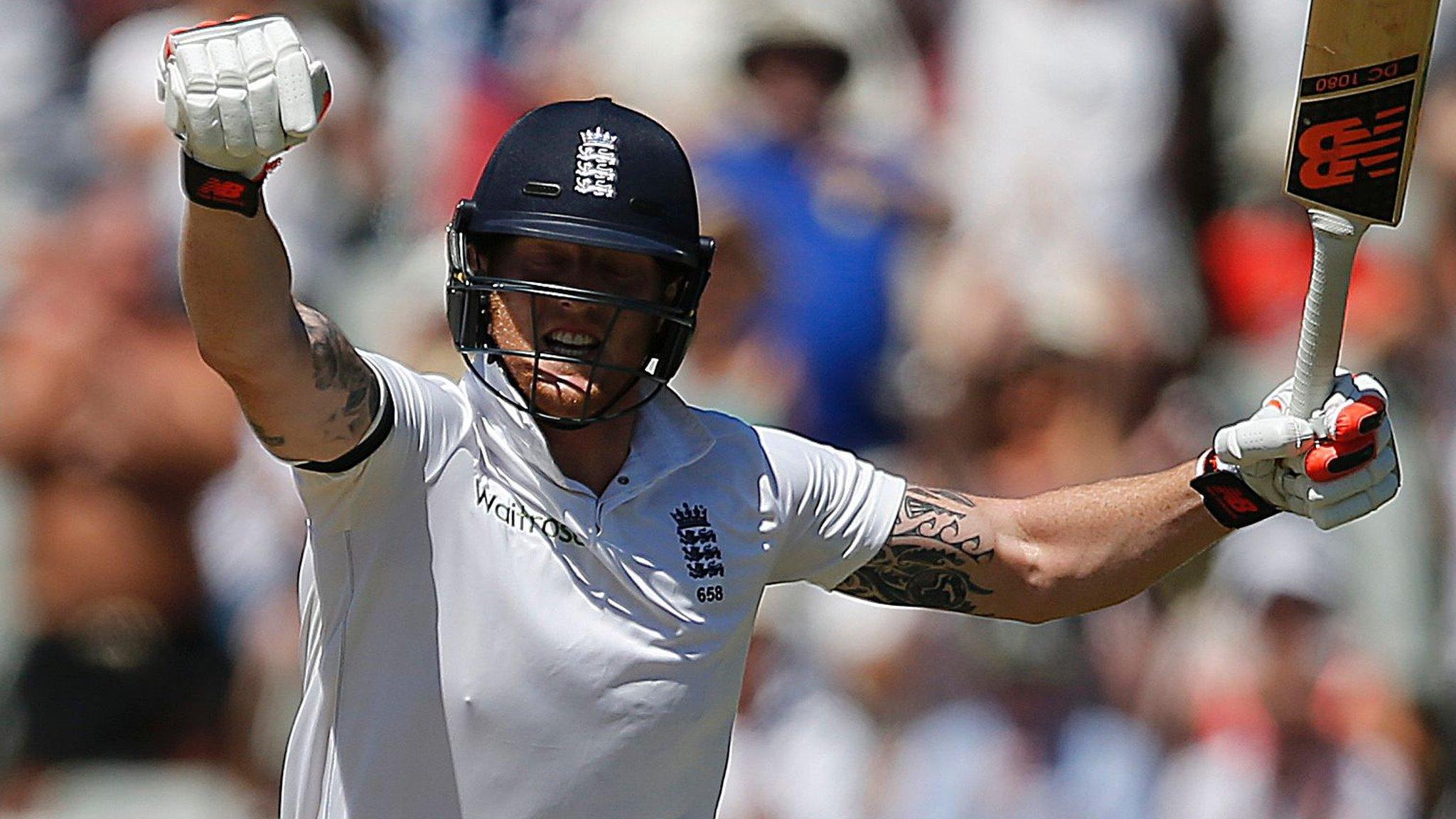Alastair Cook: Forget the captain, these are the real questions for England
- Published
- comments
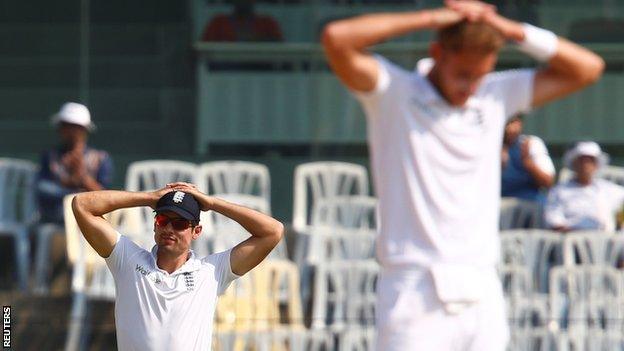
England have lost eight Tests in 2016, equalling their most losses in a calendar year
An overseas thrashing usually sends English cricket into a period of introspection.
While the 4-0 defeat in India won't unleash the investigations, reviews and upheaval of an Ashes humiliation, it could well lead to a change of captain.
But the question over Alastair Cook's future is relatively straightforward. He either stays or goes. Joe Root takes over, or he doesn't.
A much bigger issue for England is how a team including Cook, Root, Ben Stokes, Jonny Bairstow, James Anderson and Stuart Broad, who can all rightly be considered as amongst the best in the world in what they do, can be so consistently inconsistent, so prone to collapse and so likely to be on the wrong end of a thumping loss.
With a tour of Australia now less than a year away, these are the real questions facing the England team.
Are Hameed and Jennings the real deal?
England waited four years to find an opening partner for Cook, then two came along at once.
Amongst the few positives of the tour of India was the emergence of Haseeb Hameed and Keaton Jennings, who both impressed at the top of the order.
For 19-year-old Hameed, only the second teenager to debut for England since 1949, an unflappable temperament and technique with no obvious flaws seems ideally suited to opening the batting. The impressiveness of an 82 on debut was only surpassed by 59 not out made with a broken finger in his third Test.
When left-hander Jennings arrived as a replacement, he made a century on debut and followed up with 54 in the final Test. His minimal-movement style has drawn comparisons with Marcus Trescothick, though there are signs he could struggle with deliveries pushed full outside the off stump.
The smart money is on Hameed returning to open, with Jennings moving to three and Root returning to number four.
However, England will know that early success is no guarantee of a long future as a Test opener. Of the nine other partners tried alongside Cook since Andrew Strauss retired, both Sam Robson and Adam Lyth made centuries in their second Tests, only to fall away and be discarded.
"I'd give Jennings a six out of 10 chance of having a long Test career and an eight to Hameed," said former England spinner Vic Marks on Test Match Special. "There is a fair chance Jennings could be a substantial England player, but I'd put Hameed above him."
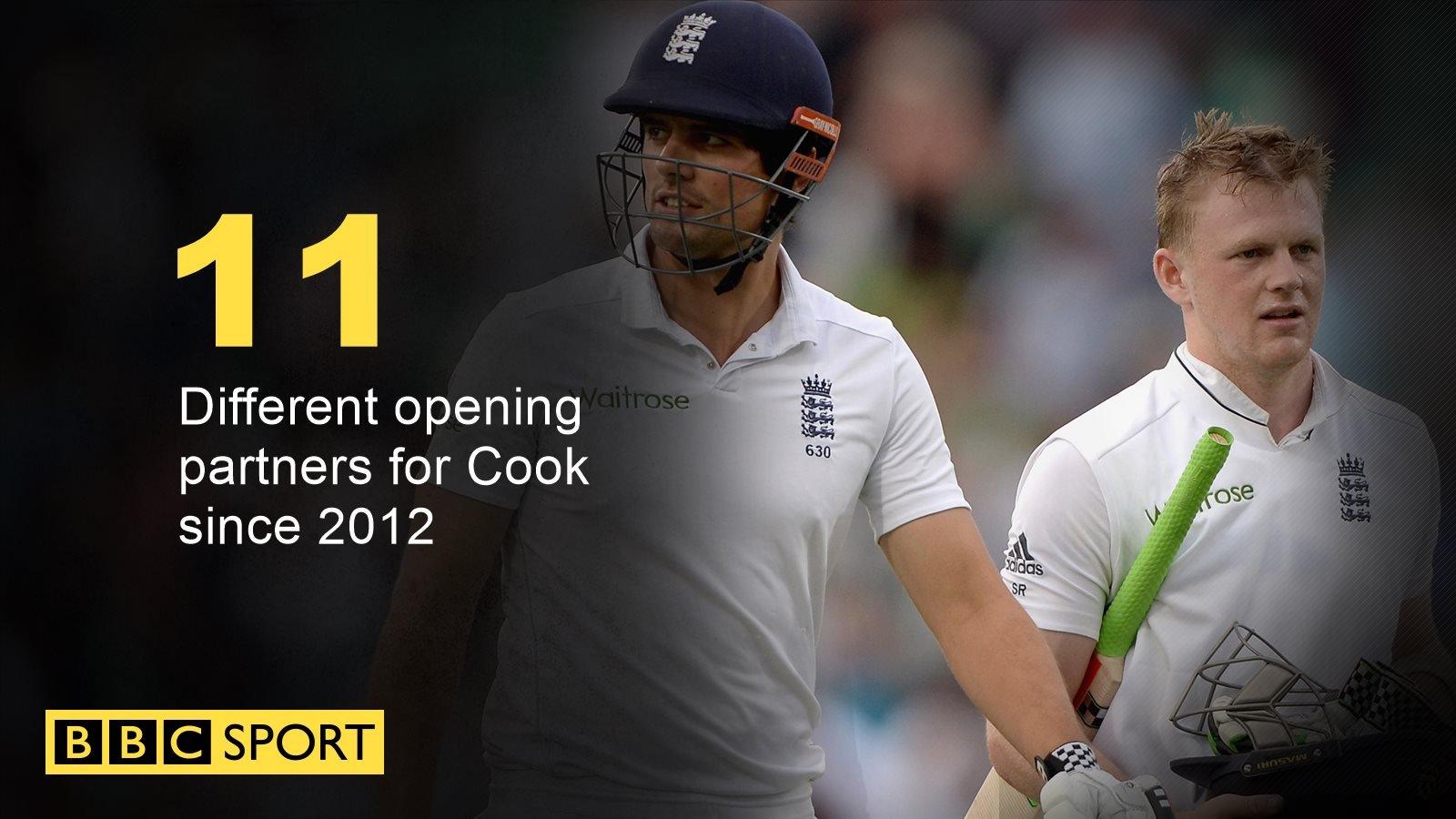
Time to shake-up the selectors?
England's selection came in for criticism on the tour of Bangladesh and India, not only for the XIs to take the field, but a squad that left some members as drinks waiters and tourists.
The form of Gary Ballance and Ben Duckett meant wicketkeeper Jos Buttler had to play as a specialist batsman, Steven Finn spent two months in India without getting a game and the omission of Somerset left-arm spinner Jack Leach was only explained by leaked information about concerns over his action.
England director of cricket Andrew Strauss opted not to to break-up the selection panel of James Whitaker, Mick Newell and Angus Fraser when he took charge in 2015, but further questions over the selection process were raised during a row over Anderson's fitness in the summer of 2016.
The situation is complicated by the fact that coach Trevor Bayliss, an Australian, has no great knowledge of the English domestic game to fall back on and little time for scouting. He regularly admits to not having seen new call-ups play before.
Could Bayliss take time away from the national side during limited-overs matches to watch more county cricket? Could Cook, who will play Championship cricket for the first half of the summer, be used as a scout? And what is the role of Andy Flower, the former England coach who now is in charge of the Lions?
"Scouting and selection is under-rated, and sitting there in a tracksuit at the ground is possibly over-rated," said TMS commentator and former England batsman Ed Smith. "The biggest issue on this tour has been selection - and one of the problems at the moment is that it's unclear where selection comes from."
Why all the collapses?
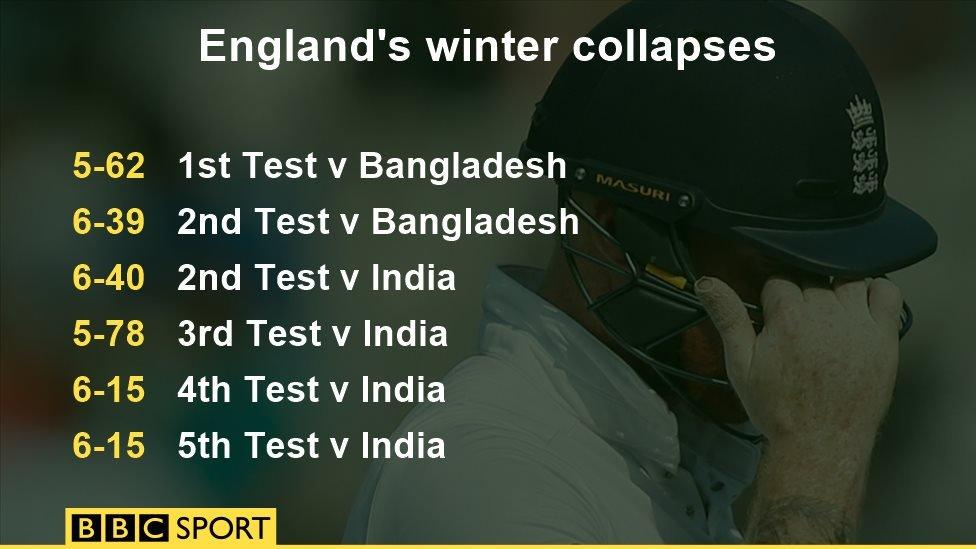
Individually, all of the regular members of England's top order can rightly think they have had a reasonable, if not stellar, winter.
Of the five men that batted in the top seven in all seven Tests - Cook, Root, Moeen Ali, Stokes and Bairstow - Cook's average of 32 is the lowest.
But, collectively, England are simply too prone to collapsing in a heap. On three occasions in Bangladesh and India they lost all 10 wickets for 104 runs or fewer.
"It's like dominoes going down," said former England batsman Geoffrey Boycott. "You push one and they all go down."
Linked to this is England's habit of losing by a huge margin.
Of the 12 defeats suffered in Bayliss' 26 matches in charge, three have been been by an innings, three more have been by more than 200 runs and another two by eight or more wickets., external
"One week England will play to a level where you think they are on a pathway to becoming very good," said former England captain Michael Vaughan on BBC Radio 5 live. "The next week they get hammered.
"I think this set of England players have a mental weakness in Test cricket."
Who is going to bat at number five?
If England have stumbled upon a top four for the summer, then that leaves a vacancy at five.
The temptation would be to ask wicketkeeper Bairstow, so prolific with the bat in 2016, to keep the role he filled in the second half of the India tour, with Stokes at six, Buttler at seven and Moeen at eight.
However, Bairstow's career batting average at number five - 30.06 - is much lower than when he bats at six (45.91) or seven (46.50).
Even in his breakout year, where he is second only to Root on the list of global runscorers, Bairstow has performed much better at six and seven than he has at five.
As for the idea of taking the gloves off Bairstow to allow him to focus on his batting, consider this. Over his Test career, his batting average as a keeper (50.96) is almost twice as good as when he doesn't have the gloves (28.96).
The statistics suggest England would be better to have Stokes at six, Bairstow at seven and find a specialist to bat at five. If that position is deemed too heady for Buttler, then Essex's Tom Westley and Worcestershire's Joe Clarke are candidates from the current Lions squad.
"England need another batsman at five," said Boycott. "All the business with playing an all-rounder or the wicketkeeper there is rubbish.
"They need five proper batsmen - that's what India did to them."
There may, however, be a candidate in the current side...
Is it time to end the Moeen experiment?
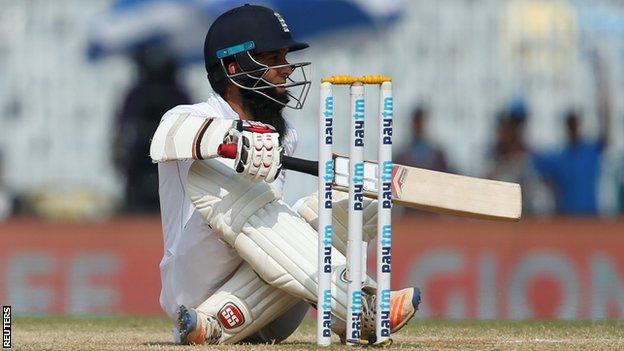
Moeen Ali has batted in every spot from one to nine for England
This is not to question Moeen's place in the side, rather the job he is being asked to do.
The Worcestershire man was given his opportunity at Test level primarily because of his off-spin bowling. Although he was really only a batsman who bowled, his natural ability as a spin bowler saw him preferred over more experienced candidates.
Even though he was learning on the job, Moeen initially prospered. However, over the course of his 37 Tests, his bowling has become less, rather than more effective. In 2014 his Test bowling average was 28. In 2015 that climbed to almost 40 and, over 2016, he has taken his wickets at a cost of 53 apiece.
Bayliss admitted that England were looking at Moeen as their second spinner at the beginning of the winter. By the end, he had slipped to third behind Adil Rashid and Liam Dawson.
Therefore is it time for Moeen, whose four Test centuries are more than any other England player in 2016, to be selected and judged on his batting alone?
Like Bairstow, he has been shunted around the order, occupying every position between one and nine, but Moeen actually averages more at four or five than he does in his most frequent spot of number eight.
Moving Moeen would give England space for a specialist spinner, retaining him would give a back-up bowling option and more responsibility at number five may go some way to eradicating the kind aberration that saw him play an awful stroke on the fifth day of the final Test.
"Moeen is a wonderful player with a gift to play cricket," said Vaughan. "But he needs something different going on between the ears, to think better about it.
Will England always be in a spin?
England were not expected to win in India, but the ordeal once again exposed eternal failings in the batting against and bowling of spin.
Their most famous recent series win in Asia, the 2-1 triumph over India in 2012, was built on the runs of Cook and Kevin Pietersen, along with the world-class spin of Graeme Swann and Monty Panesar.
Since Pietersen, Swann and Panesar last featured for England, they have played 10 Tests in Asia and won only once, losing seven. Replacements for high-quality spinners and players of slow bowling have not been found.
Finding spinners from a domestic game that often mistrusts them has long been difficult for England, but new rules on the toss in the County Championship helped Leach and Middlesex's Ollie Rayner prosper in 2016.
As for the likes of Root, Bairstow, Moeen and Stokes, the talent to become a successful player of spin exists, but a change in attitude may be required.
"They just have to keep their wickets intact, to keep batting," said Boycott. "But they can't stop scoring runs because they are frightened to death of defending - they are absolutely rubbish at it.
"They do not know how to play the turning ball. It demands a different type of concentration, temperament and mental application."
England have two years to get it right. Their next trip to the subcontinent is a tour of Sri Lanka in 2018.
- Published21 December 2016
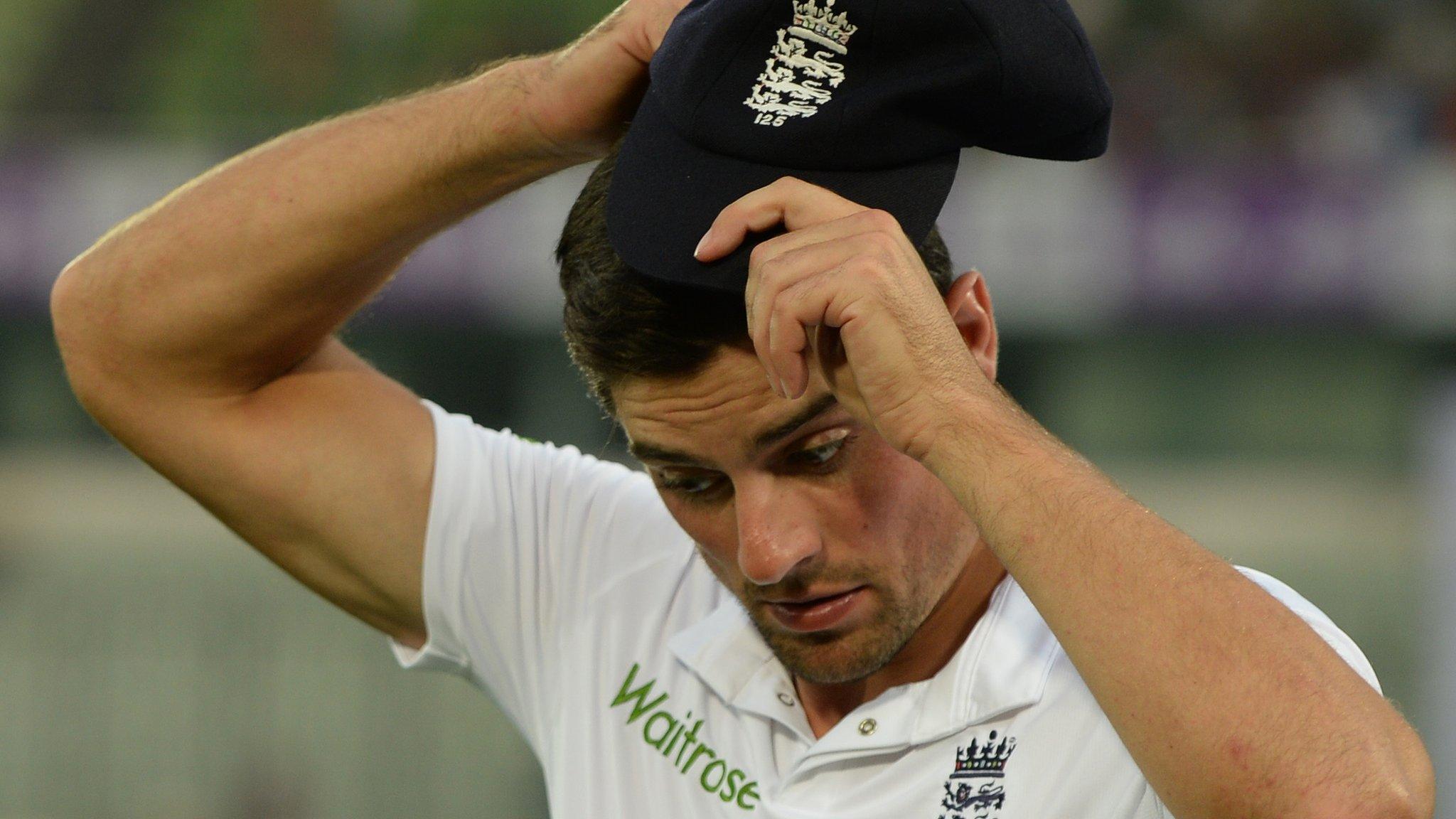
- Published20 December 2016
- Published20 December 2016
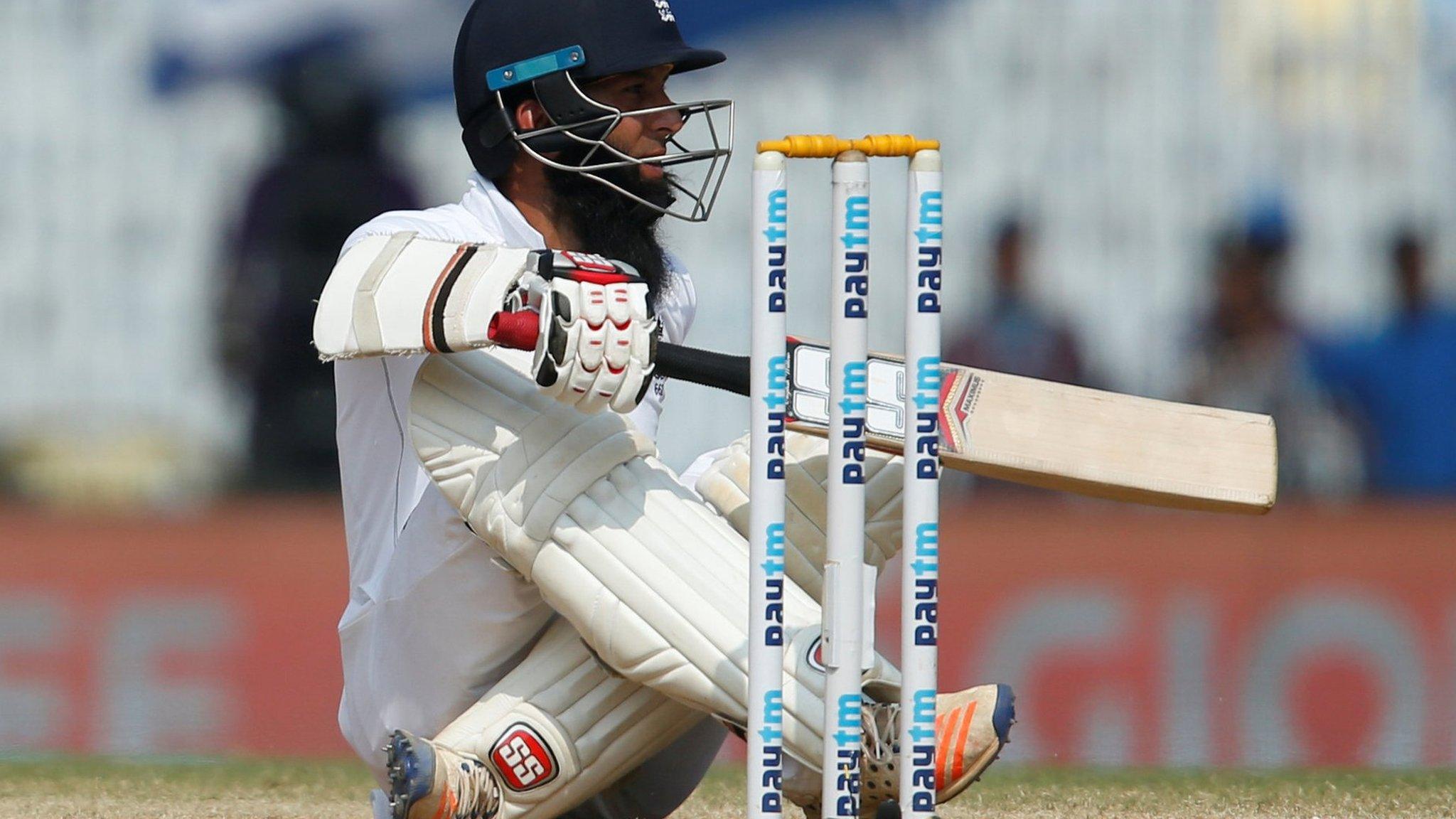
- Published20 December 2016
